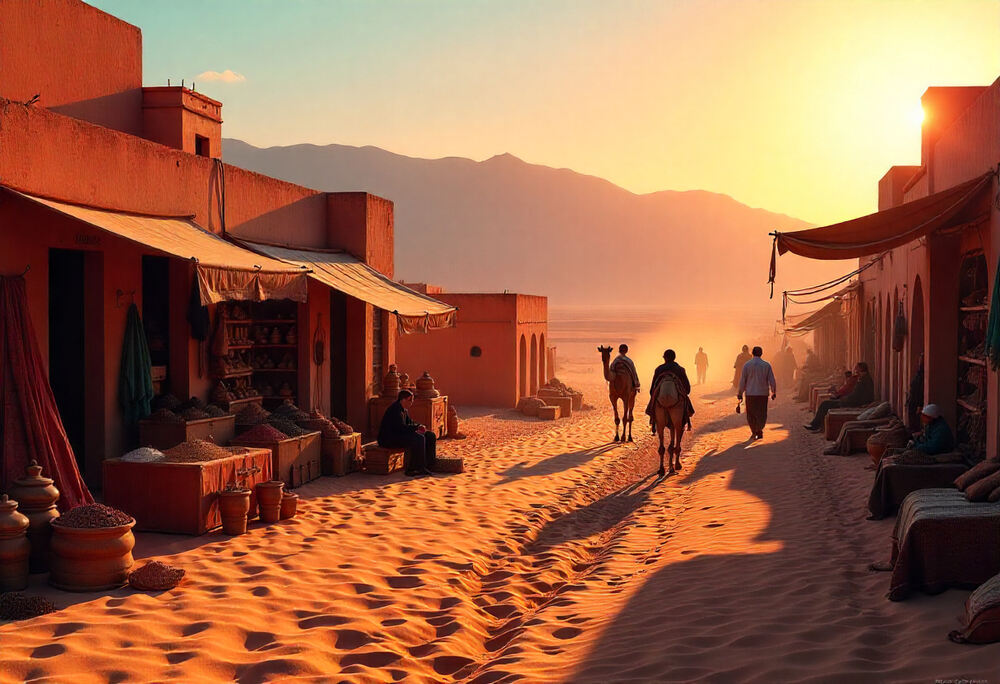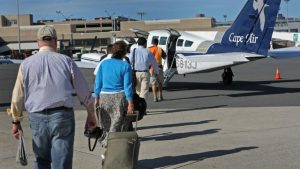Published on October 6, 2025
Germany’s latest announcement has issued travel alerts for Morocco, Romania, the Philippines, Madagascar, and North Macedonia because of increased demonstrations, policing issues, and natural hazards. Morocco has increased tensions with protests in major cities plus the worsening border security with Algeria and the Western Sahara. The Philippines have alarming earthquake/excessive storms with the added concern of volcano eruptions. Romania’s political protests, mostly concentrated in Bucharest, along with being in a a neactivly hostile zone causing earthquakes make matters much worse. Madagascar has civil issues along the coasts with the added concern of cyclone season. The North Macedonia political issues with windows border with Kosovo and Serbia and the emergence of protests in major cities. The advised step must be to follow the news on current political events, travel alerts, and reconsider the border as entry must be really careful.
Germany has recently issued updated travel warnings and safety alerts for several countries, including Morocco, the Philippines, Romania, Madagascar, and North Macedonia. These travel advisories focus on various risks that travelers should be aware of, including political instability, border security concerns, and the potential for natural disasters. In addition to these safety concerns, specific regions in these countries have been highlighted as particularly high-risk areas, with authorities urging travelers to exercise caution and stay informed.
Advertisement
Advertisement
In this comprehensive report, we’ll delve into the reasons behind these advisories, providing detailed insights into the current security situation, natural hazards, and other travel considerations. This information is crucial for anyone planning to visit these destinations and will help ensure a safe and informed travel experience.
Morocco: Political Instability and Border Security Concerns
Morocco has long been a popular destination for travelers, known for its rich culture, stunning landscapes, and historical cities. However, recent political unrest and border security issues have prompted the German government to issue a travel warning for the country. Germany has specifically highlighted the increasing frequency of political protests and demonstrations, particularly in larger cities like Rabat, Casablanca, and Agadir. These protests have been driven by a loosely organized youth movement, and although they have generally been peaceful, they have occasionally resulted in violence and property damage.
Advertisement
- Travel Tips for Morocco:
- Stay informed about the latest updates on political protests via local media and social media channels.
- Avoid areas where protests are concentrated, particularly in central locations like government buildings and public squares.
- Travel with a group when venturing into remote desert areas, such as Merzouga and Zagora, to ensure safety and a guided experience.
Advertisement
Travelers are advised to avoid demonstrations and large gatherings and to stay informed about the latest developments through local media and social media channels. German citizens traveling to Morocco should also be cautious when traveling after dark, as political tensions tend to escalate during nighttime hours. As a precautionary measure, it is recommended to check with local authorities for daily updates on the political situation, especially in areas where protests have been most active.
In addition to political instability, Morocco’s border regions, particularly those near Algeria and the disputed Western Sahara territory, have been highlighted as high-risk zones. The border with Algeria has been closed since 1994, and the area remains under tight surveillance by Moroccan security forces. Any travel to or near this region is strongly discouraged, as it poses a significant safety risk, including the possibility of arrest. Furthermore, the Western Sahara region is under ongoing territorial dispute, with the presence of landmines and unexploded ordnance posing an additional threat to travelers.
Advertisement
- Special Advice for Western Sahara and Border Regions:
- Avoid all non-tourist routes in the border areas of Morocco, particularly near Algeria and Western Sahara.
- Stay on designated paths such as the Laayoune – Dakhla route and refrain from deviating into restricted areas, where mines and unexploded ordnance may be present.
- Always ensure that the local guides have official certifications when booking desert tours.
Romania: Political Demonstrations and Safety Precautions
Advertisement
Romania, with its picturesque landscapes and rich cultural heritage, remains a popular destination for German tourists. However, the German government has issued a travel advisory due to the risk of political demonstrations and civil unrest. Protests are common in Romania, particularly in the capital city of Bucharest, and although they are generally peaceful, there is always the possibility of violent clashes between demonstrators and law enforcement. Travelers are advised to avoid large gatherings and to follow the instructions of local authorities to ensure their safety.
- Travel Precautions in Bucharest and Other Urban Areas:
- Stay away from government buildings and areas where protests are being organized.
- If you find yourself in the middle of a protest, exit the area as quickly and calmly as possible.
- Monitor news sources for updates on any upcoming protests or political unrest.
Romania is also located in a seismically active zone, with the potential for earthquakes. While the risk of a major earthquake is relatively low, travelers should still be aware of the possibility of tremors and familiarize themselves with earthquake safety measures. In addition to seismic risks, Romania’s Carpathian Mountains are home to a significant wild bear population, which can sometimes venture into populated areas. Travelers exploring rural or mountainous regions should be cautious and follow safety advice to avoid encounters with bears.
- Wildlife Safety:
- Be cautious when hiking in rural and mountainous regions, especially along the Transfăgărășan Highway, where wild bears may be present.
- If you encounter a bear, do not approach it and avoid running. Instead, remain calm and back away slowly.
- Follow all posted safety signs regarding wildlife and bear activity in popular tourist areas.
Petty crime, particularly pickpocketing and purse-snatching, remains a concern in tourist-heavy locations such as airports, train stations, and public transport systems. Additionally, vehicle thefts and break-ins can occur, especially with high-value cars with foreign license plates. To avoid becoming a target, travelers are advised to park their vehicles in guarded areas, keep valuables out of sight, and be cautious when using public transportation.
Philippines: Political Unrest and Natural Disaster Risks
The Philippines is another destination that has seen an uptick in travel warnings due to ongoing political unrest, heightened risk of terrorism, and natural disasters. A 6.9 magnitude earthquake struck northern Cebu Province on September 30, 2025, causing significant destruction and fatalities. While major commercial airports and ferry services have largely remained unaffected, power outages and road blockages continue to impact several regions. The German government has advised all travelers to follow the instructions of local authorities and to stay clear of damaged infrastructure until it has been inspected and declared safe.
- Special Info for Earthquake Preparedness:
- Familiarize yourself with earthquake safety procedures before traveling to the Philippines.
- Always be prepared for aftershocks, which can occur following major seismic events.
- If you are in an affected region, stay in open areas away from buildings and avoid using elevators in high-rise buildings.
Beyond earthquakes, the Philippines faces multiple natural hazards, including tropical storms, floods, and the potential for volcanic eruptions. The country is situated in the Pacific Ring of Fire, making it particularly vulnerable to seismic activity. Travelers should be prepared for aftershocks and familiarize themselves with safety protocols for earthquakes, tsunamis, and volcanic eruptions. The government has issued clear guidelines for those visiting active volcanoes such as Mount Mayon and Taal, with exclusion zones often in place during periods of heightened volcanic activity.
- Typhoon and Flood Risk:
- Be aware of the country’s typhoon season, which runs from June to December, bringing powerful storms and heavy rainfall.
- Monitor local weather updates, especially if you are traveling to coastal or mountainous areas.
- Avoid flood-prone regions during the rainy season, and plan your travel to avoid storm paths.
The southern regions of the Philippines, including the Zamboanga Peninsula and Mindanao, are currently experiencing political instability, including ongoing insurgent activity. The Philippine government has reported a significant increase in bomb attacks and clashes between insurgent groups and security forces in these areas. Foreign travelers, particularly those unfamiliar with the region, are advised to exercise extreme caution when traveling to these parts of the country. Kidnapping and extortion have been reported in several areas, including the Sulu Archipelago, which is a hotspot for such activities. Travelers are urged to avoid non-essential travel to Mindanao, especially outside of Davao City, which is considered relatively safer.
- Safety Tip for Travelers in Mindanao and Sulu Archipelago:
- Avoid any travel to Mindanao and the Sulu Archipelago unless it is absolutely necessary.
- Be aware of local travel advisories and coordinate with trusted local guides or hotels when traveling in less familiar areas.
The German Embassy in Manila has further warned travelers to remain vigilant in large crowds and busy areas, as petty theft and scams are common, especially near popular tourist destinations. Visitors should take precautions to safeguard their personal belongings, avoid accepting unsolicited offers from strangers, and be wary of online fraud schemes.
Madagascar: Civil Unrest and Natural Hazards
Madagascar, known for its unique wildlife and landscapes, is currently experiencing significant civil unrest. Protests and violent riots have been reported in several cities, including Antananarivo, the capital, and in other areas such as Diego Suarez and Mahajanga. The protests have been driven by political dissatisfaction, and while some have been peaceful, there have been instances of looting and violent clashes. The German government strongly advises against non-essential travel to Madagascar at this time, especially to the affected cities.
- Safety Tips for Madagascar Amid Unrest:
- Avoid all areas where protests and demonstrations are taking place.
- Stay indoors during curfew hours, and avoid unnecessary travel at night.
- If you need to travel, make sure to contact your hotel or tour operator for the latest security updates.
Travelers are urged to adhere to curfews and stay indoors during periods of heightened unrest. The use of tear gas by security forces in response to demonstrations has been reported, and travelers should avoid areas where such incidents are occurring. Public transportation and roadways may be disrupted, and certain businesses, such as banks and gas stations, have closed temporarily due to the unrest. Internet and mobile services may also be restricted or unavailable at short notice.
In addition to political instability, Madagascar is prone to tropical storms and cyclones, especially during the rainy season from December to April. These storms can cause severe flooding and landslides, particularly in coastal and mountainous areas. Travelers should monitor weather forecasts and be aware of evacuation plans in the event of a storm. It is also advised to avoid hiking in regions prone to flooding, such as the Isalo Massif, during the rainy season.
North Macedonia: Political Unrest and Safety Measures
North Macedonia, located in the heart of the Balkans, offers travelers a rich cultural experience and picturesque landscapes. However, despite its peaceful reputation, recent political tensions and occasional demonstrations have prompted the German government to issue a travel advisory for the country. While North Macedonia’s overall safety situation remains relatively calm, travelers should be aware of the potential risks surrounding political protests, particularly in the capital city of Skopje.
- Travel Precautions in Skopje and Other Cities:
- Avoid areas near government buildings and public squares, especially during times of political unrest or protests.
- Stay updated on the latest developments via local media or government sources to be aware of any scheduled protests.
- Should you encounter a protest, remain calm and avoid participating in any demonstrations. It’s best to leave the area immediately.
Protests are generally peaceful but can sometimes escalate, especially in the capital. Political rallies can attract large crowds and, in some cases, lead to violence or clashes with police. Travelers are advised to stay alert, avoid gathering places, and always follow the instructions of local authorities to avoid any unnecessary risks.
North Macedonia’s border areas, especially those near Kosovo and Serbia, can be prone to tension. The situation in these regions remains somewhat volatile due to the political dynamics between neighboring countries. While North Macedonia is not typically a high-risk destination, travelers are advised to exercise extra caution when visiting northern or northwestern border areas, particularly if traveling off the main routes. These areas may sometimes experience heightened military presence and occasional border-related disturbances.
- Important Border Safety Information:
- Use only official border crossings and avoid attempting to cross borders outside of designated areas.
- Do not accompany migrants across borders or pick up hitchhikers, as this is illegal and punishable by imprisonment.
- Travelers should be cautious in border zones, particularly during periods of heightened security or border checks.
In addition to political unrest, petty crime such as pickpocketing and purse snatching is a concern, particularly in crowded areas like airports, bus stations, and public transport hubs. These types of thefts are more common in larger cities like Skopje, and travelers should take necessary precautions to safeguard their valuables.
- Crime and Safety Tips:
- Always keep your belongings secure, especially in crowded places or on public transport.
- Do not leave valuables in unattended vehicles, and avoid carrying large sums of money or expensive jewelry.
- Use a money belt or secure bags, and avoid keeping wallets or phones in easily accessible pockets.
North Macedonia is generally considered a safe country for tourists, but it is important to remain vigilant. Crime rates are relatively low compared to other European countries, but street crime can still affect tourists, particularly those unfamiliar with local customs or safety practices.
- Traffic and Road Safety:
- If traveling by car, always park in designated, secure areas, especially in busy urban centers.
- Avoid driving at night, particularly in more remote or rural regions, where road conditions may be poor.
- Be cautious of unmarked police checkpoints, which may occasionally occur in border regions or near sensitive areas.
As travelers continue to explore the world, it is essential to stay informed about the latest travel advisories and security updates. Germany’s travel warnings for Morocco, the Philippines, Romania, Madagascar, and North Macedonia provide valuable insights into the current risks and challenges facing travelers in these regions. By following the recommendations provided by the German government and local authorities, travelers can minimize risks and enjoy a safer, more enjoyable journey.
Germany has issued travel alerts for Morocco, Romania, the Philippines, Madagascar, and North Macedonia due to rising political protests, border security concerns, and natural hazards like earthquakes, cyclones, and volcanic activity in these regions. Travelers are urged to stay informed and exercise caution.
Before embarking on international travel, always ensure that you have the most up-to-date information regarding the destination’s safety situation, natural hazards, and any legal or cultural considerations. It is also advisable to have emergency contact information and travel insurance in place to mitigate any unforeseen issues during your trip.
Advertisement
Tags: germany, morocco, Philippines, romania, travel alerts
Advertisement
Tags: germany, morocco, Philippines, romania, travel alerts
I want to receive travel news and trade event update from Travel And Tour World. I have read Travel And Tour World’sPrivacy Notice.
Monday, October 6, 2025
Monday, October 6, 2025
Monday, October 6, 2025
Monday, October 6, 2025
Monday, October 6, 2025
Monday, October 6, 2025
Monday, October 6, 2025
Monday, October 6, 2025




